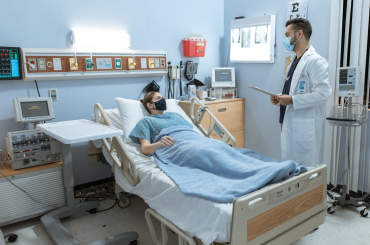September is often a place where ‘fresh starts’ begin. For many of us, it’s a new beginning as the kids go back to school, and for others the simple note of the leaves changing into the beautiful colours of fall, is enough to resonate that another season has come and gone.
September also coincides with the Jewish New Year; Rosh Hashanah which is a time for reflection. I tune in and
ask the courageous question of what would I like to see differently and what no longer serves me in my life?
Just as a business owner will take an inventory of what they have in stock, it is important to me to reevaluate in the same manner, what I have happening in my life and if it still serves me for the highest good of all. Failing to plan is planning to fail. Now is the time to go full-force in the direction of our goals, if we haven’t done so already.
So, what action steps do you need to take, to move you one step closer to living your life to its fullest or simply following through on your goals for the coming school year?
As a Mental Health Activist, I am intrigued by the challenging question as to why Mental Health never garners the same respect as Cancer or Diabetes? I have been evaluating the areas that I wish to pay more attention for the coming school year, and speaking my authentic truth jumped out and the time is now. No matter how unpopular I may be, I would like to see a shift in public policy around Mental Health with the hope that it will unite more families and reduce stigma.
Are we still in the dark ages where we truly do not believe it is an illness but simply a moral failing? Are we even aware of some of the signs of identifying early onset of depression, anxiety, mood disorders and substance abuse? And if not, why not? Have we thought these conditions are not important enough to recognize the signs of mental illness, so we don’t further perpetuate it?
Times are changing, and September is National Recovery Month across North America. It’s a time to honour those who live with and who have overcome acute mental health and substance use disorders as we celebrate millions of people who have recovered and are now living healthy and fulfilling lives. Their level of functioning has increased tenfold and I think it is important to showcase the new movement of ‘light workers’ who choose to recover out loud, and the importance of doing so.
Mental Health and Substance Use Disorder is a National Health Crisis. For every individual who suffers from Mental Health and or Substance Use Disorders their behaviour will impact five to seven family members or loved ones as well.
Recovery Day has now become a growing movement where communities across the US and Canada are creating pop up celebrations highlighting the importance of people who recover as well as those who chose to recover out loud. By recovering out loud, we eradicate the stigma that accompanies mental health issues and reduce the judgement, isolation and suffering that often accompanies Mental Illness, unlike Physical Illnesses.
We still have a long way to go. After all if you had a serious physical illness, people line up out the door with casseroles and call asking if there is anything they can do to help! This is a subject I am extremely passionate about as well as curious, as I have written about this very matter in a previous blog, “No One brings you casseroles when your loved one is mentally ill”, so I won’t labour the point, but feel it is important enough to pay attention to, and recognize that we can shape our world by speaking out for what we believe in and is the right thing to do.
According to Johann Hari, the author Chasing the Scream, ‘the opposite of Addiction is connection, not sobriety’. Isolation keeps us disconnected, increasing our feelings of inadequacy as compared to being part of a vibrant movement that promotes connection and healthy living.
Recovery Month showcases countless examples of how prevention and treatment can work and more importantly possibility for full rehabilitation. The importance of this work being highlighted cannot be emphasized enough, as the alternatives are bleak otherwise!
As a crusader for people to show that we do recover and are genuinely happier than most people and are overall more fulfilled, it is for this reason that I feel strongly that our successes in Recovery need to be celebrated which offers hope for those of us still suffering.
The gains of Recovery are too many to mention, but if we were to look
at Recovery in the concept of Recovery Capital, you can quickly see the ripple effect it has in all areas of life, not just for an individual but for the family and for the community as well.
We cannot ignore the dividends from a byproduct such as Recovery.
Improved physical health, families and relationships restored, reduction of high-risk behaviour to one’s health and society, job security and the social and economic cost on socialized systems is beyond measurable.
Furthermore, for every person we save in Recovery, we will impact three-four generations moving forward, isn’t that a big enough incentive? Restoring family systems, people’s health, increased level of functioning, improved relationships, enhancing self-esteem and a contribution to society.
Lately, I have been asking some of the bigger questions about what are we in Recovery from or have we simply dropped into life?
Abstinence form drugs and alcohol is the admission price for an upgrade in your life, and for some of us we only knew how to cope with maladaptive habits accompanied with a deficit in life skills, to me, there is no other way.
Sobriety is the doorway to change, it’s what gets you in the game of life.
But what about when you are abstinent from substances, going to meetings, living a spiritual life, working with a sponsor, have a therapist and still feel like there is something terribly wrong?
This is when we need to pull out everything we possibly can and be open minded to the multiple pathways of recovery that now exist.
Being curious about alternative modalities is an educated decision and should not be considered as a threat to the more conventional norms.
The rooms give me my life and can offer us a blue print for a “design for living”, and a serious upgrade in life. Life did improve for me, but it wasn’t enough to take me all the way.
I was met with this very resistance when I became a SMART Recovery Facilitator, and some of my friends from the rooms were in solid Recovery. I was not asking anyone to give something up that works for them, I am asking them to consider opening their mind to alternative ways to recovery. It’s time we recognize that different people may need different things at different times. But as the program has taught me, live and let live!
Recovery teaches us how to drop into our life. Today my Recovery is a whatever it takes approach, it is a variety of different modalities that work for me depending on my evolution and growth, accompanied by a personal mantra of to do no harm to self or anyone.
So, wherever you are on your journey, celebrate National Recovery Month in a community near you!








